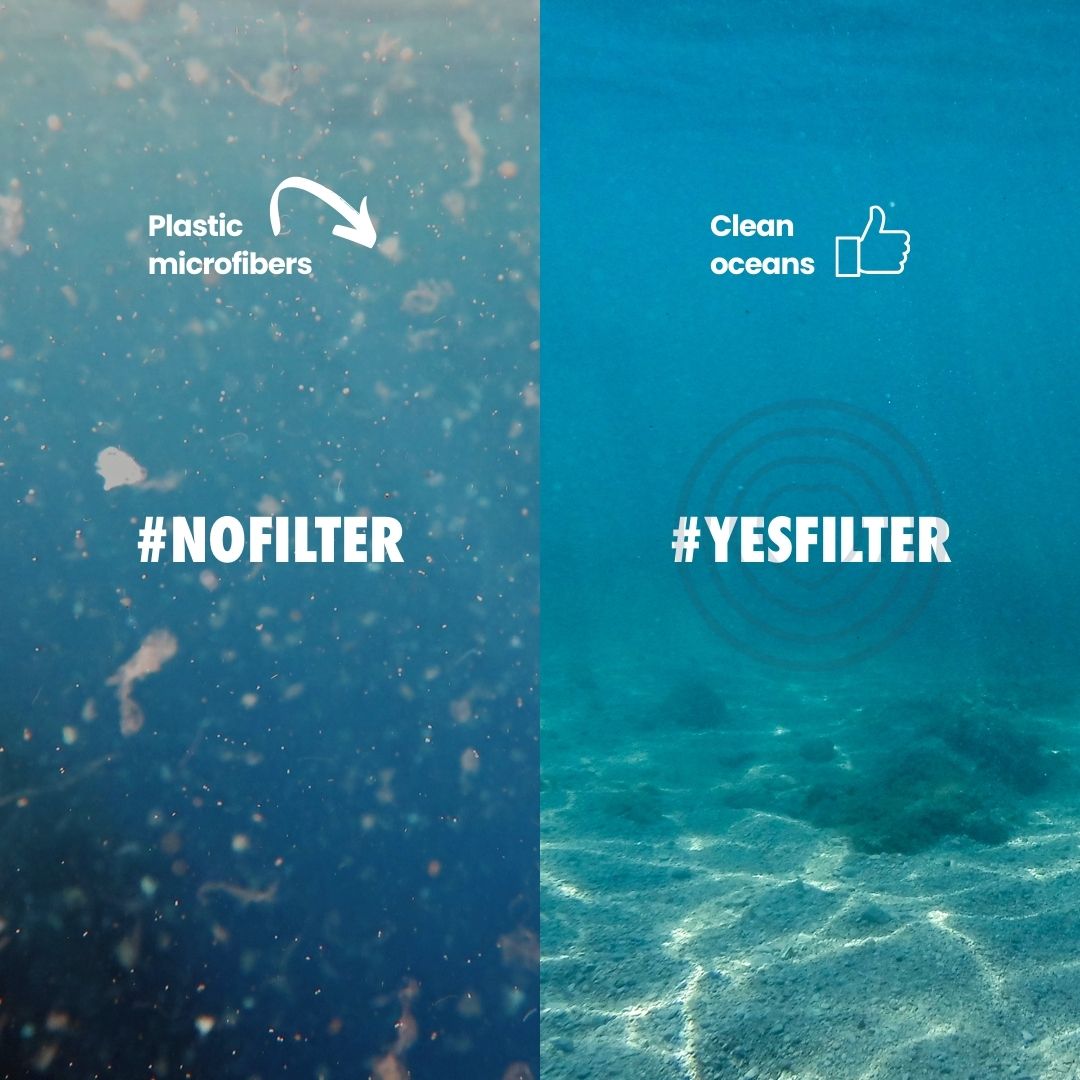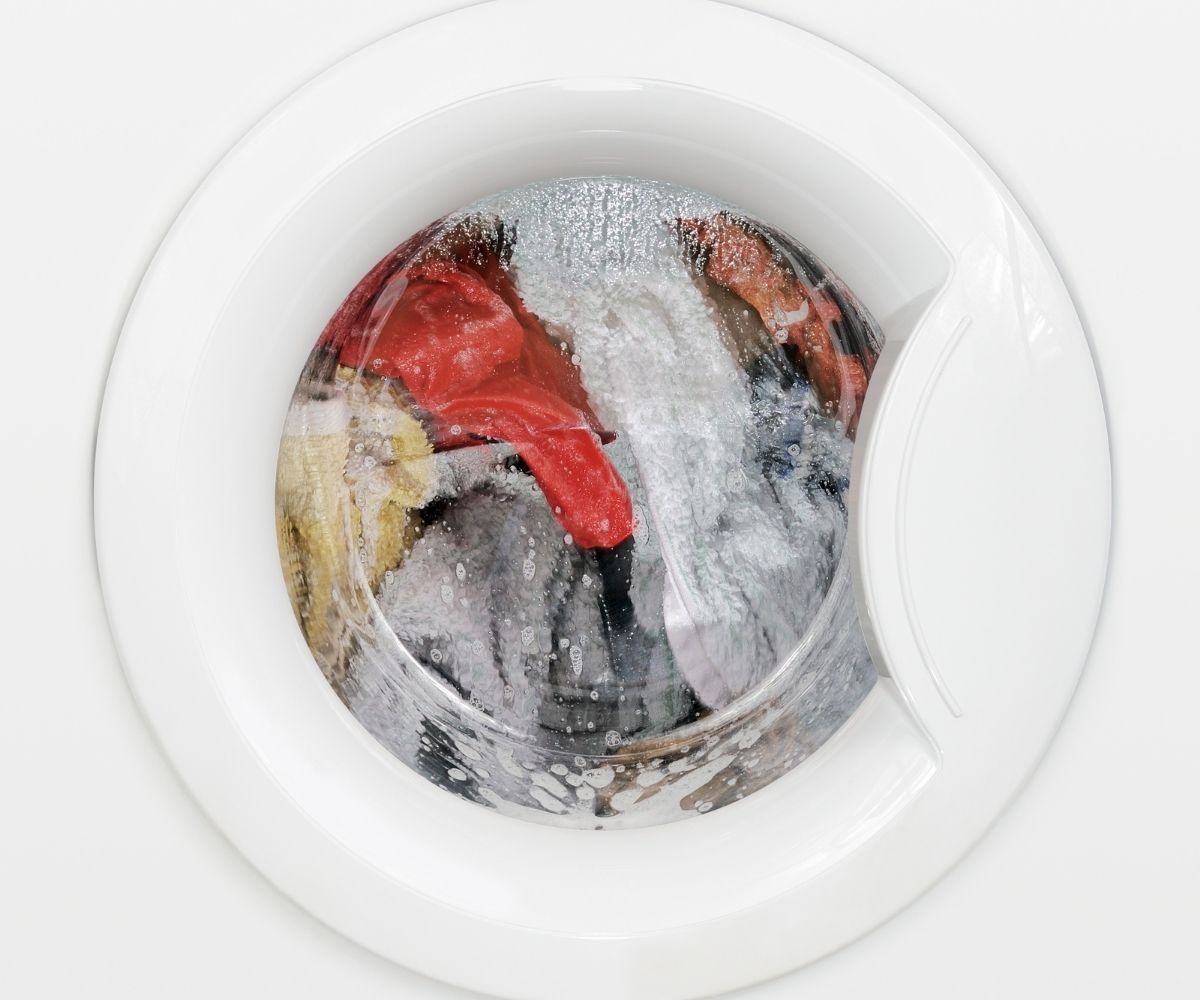Washing clothes pollutes oceans with microplastics.
Every time we wash our clothes hundreds of thousands of microscopic plastic fibers are released into the wastewater. 🧺 😵
Because washing machines don't have filters to catch them, all these small plastic particles end up in wastewater and travel down the drain.
They pollute the environment, harmecosystems, and end up in our food and drinking water. 🌎 💦 🥦

Every year, over a million tons of microplastics end up in oceans.
Our washing machines are a major source of this plastic pollution. Researchers found that an average 6 kg load of laundry releases more than 700,000 microscopic plastic fibers into wastewater. This was shown in a study by the University of Plymouth (Napper & Thompson, 2016), highlighting just how many plastic fibers can be shed from clothes with every wash. These plastic fibers come from synthetic (= plastic) textiles like polyester. Synthetic textiles have become a staple in our wardrobes: today, over 60% of textiles are synthetic. This, too, has opened the door for microplastic to pollute every corner of the Earth.
Microplastics have now been found everywhere: at the bottom of the Mariana Trench, on remote alpine peaks, and in our food and drinking water. Due to their small sizes they are highly mobile and easily ingested by many organisms. They also have the ability to bind chemical pollutants. Studies show they cause poisoning, infertility, and genetic disruption. It is known that microplastics can enter human body through the nose or mouth and small enough particles can end up in our lung tissues.

Our vision
is that in the future all washing machines will be equipped with efficient filters that will automatically stop fibres.
PlanetCare's microfibre filters were developed to stop the harmful and widespread microplastics pollution.
We believe this source of pollution can and should be prevented and that the washing machine is the most convenient place to stop it.
PlanetCare microfibre filters have been independently tested and proven to stop 98% of microfibres.
This makes PlanetCare the best solution available on the market.

Ways to stop microplastic pollution
Besides installing an efficient microfiber filter, there are quite a few things you can do to reduce microfiber pollution from washing:
✅ Choose more clothes made from natural fibers such as cotton, wool, or linen.
✅ Take good care of your clothes: mend them, and buy new clothes less often. Researchers found that new clothing sheds more fibers than older.
✅ Wash your clothes at lower temperatures, and only when really necessary.
✅ Always make sure you only wash full loads.
Thank you
for caring about making oceans plastic-free again!
Source: Napper, I.E. & Thompson, R.C. (2016). Release of synthetic microplastic fibres from domestic washing machines: Effects of fabric type and washing conditions. Marine Pollution Bulletin.







